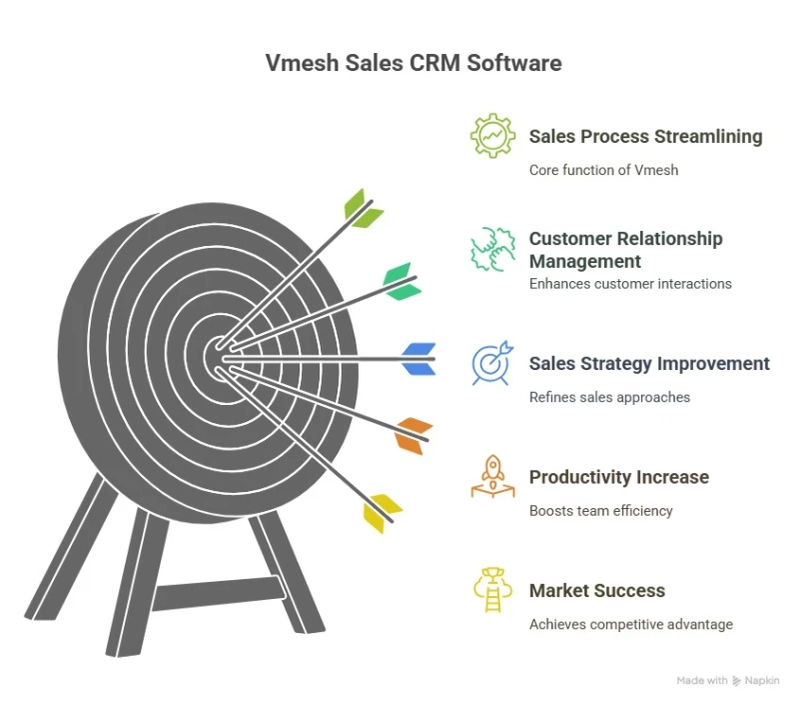For decades, Customer Relationship Management (CRM) software has been the bedrock of sales operations. It was the promised land for organized sales teams—a single, unified system to store customer data, track interactions, and manage pipelines. But for many, this promise fell short. The CRM became little more than a glorified, and often dreaded, digital filing cabinet. A place where reps were forced to input data, not extract value—a system of record, not a system of engagement.
Today, that paradigm is undergoing a seismic shift. The question is no longer just "Do you have a sales CRM?" but "What kind of intelligence does your CRM possess?" The evolution from passive database to active, AI-powered sales coach is the most critical transformation in modern sales technology, and it’s one that businesses can no longer afford to ignore.
The Era of the Digital Filing Cabinet
Traditional CRMs excelled at storage. They housed:
- Basic Contact Information: Names, numbers, and emails.
- Deal Stages: A visual pipeline showing opportunities.
- Activity Logs: Records of calls made and emails sent.
- Sales Reports: Historical data on what already happened.
The fundamental flaw of this model was its inherent backward focus. It told managers what the team did last quarter, but it offered little guidance on what to do next. Sales reps often viewed data entry as administrative overhead, a necessary evil to keep management happy. The CRM was a source of truth, but not a source of insight. The value was reactive, extracted only through manual analysis.
The Rise of the AI-Powered Sales Coach
Modern sales CRM software is undergoing an intelligence infusion. Powered by Artificial Intelligence (AI) and Machine Learning (ML), the new generation of platforms is proactive, predictive, and prescriptive. It’s less like a cabinet and more like a seasoned sales coach sitting beside each rep, offering real-time guidance.
This shift is powered by key features that are redefining CRM value:
- Predictive Analytics: AI algorithms analyze historical and current data to predict future outcomes. Your CRM can now forecast deals with startling accuracy, identify which leads are most likely to convert (lead scoring), and even flag at-risk customers before they churn.
- Prescriptive Recommendations: This is the true "coach" function. The CRM doesn’t just predict what will happen; it suggests what you should do. It can recommend the best time to contact a prospect, the most effective content to send, or even advise on which existing customer might be ripe for an upsell based on their usage patterns.
- Automation of Routine Tasks: AI-powered CRMs automate the very tasks that made reps resentful. They can auto-log emails and calls, generate follow-up tasks, and even draft personalized email responses. This frees up reps to do what they do best: sell and build relationships.
- Intelligent Insights from Conversation Intelligence: By integrating with call and video meeting software, the CRM can analyze sales conversations. It provides feedback on talk-to-listen ratios, identifies competitive mentions, and highlights key discussion points that indicate a deal is moving forward or stalling.
Making the Shift: It’s a Strategic Imperacy
Treating your CRM as a mere filing cabinet is no longer a viable strategy. It leads to stagnant pipelines, inaccurate forecasts, and rep disengagement. Embracing its role as an AI-powered coach is how you gain a competitive edge.
The transition requires more than just purchasing new software; it requires a cultural shift. It means trusting data-driven recommendations and encouraging reps to lean into the insights their sales CRM software provides. It’s about moving from a culture of data entry to a culture of data-driven action.
The shift is undeniable. The CRM software you choose today will either be a static record of your past successes or an active participant in creating your future ones. Don’t just file your data—activate it. Your bottom line depends on it.



